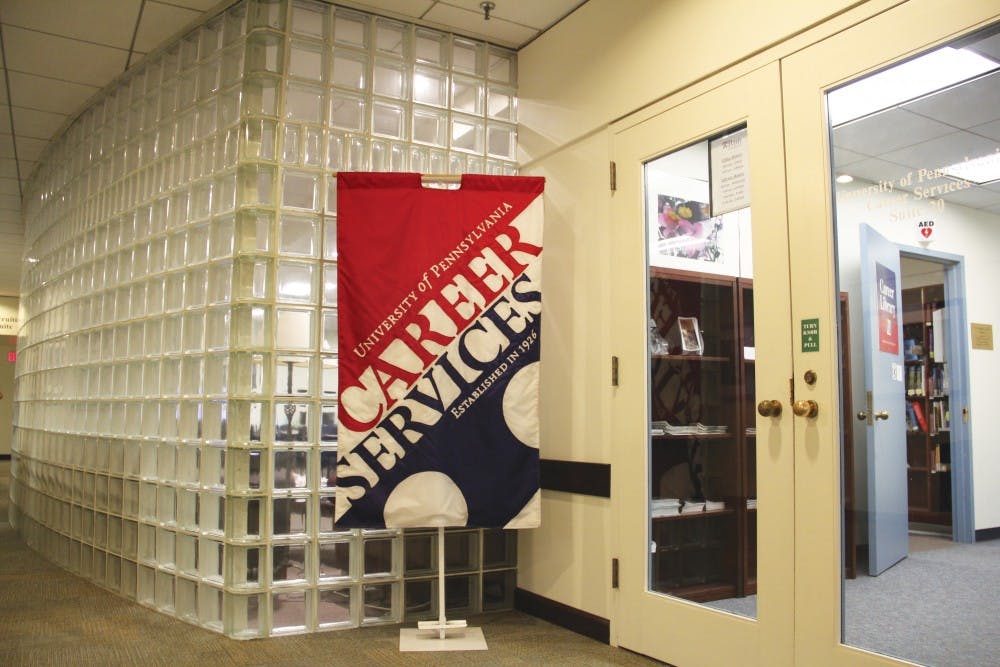
With a high grade point average and a slew of difficult classes under his belt, first-generation, low-income student Min Choi hoped to secure a sophomore summer internship. However, Choi lacked any familial connections in the banking and consulting industries which took a toll on his application process.
“I got rejected by every single big company and I realized I need a network,” Choi, currently a Wharton senior, said. “I had horrible sophomore slump.”
Like Choi, many FGLI students say they face additional hurdles in the on-campus recruiting process due to their backgrounds. In addition to networking, FGLI students cite lack of "soft skills," expensive business attire, and competition with wealthy peers as key issues.
Penn's Career Services Executive Director Barbara Hewitt has made it an ongoing goal to address these issues. The office provides a Quaker Career Closet that offers low-income students with professional clothing for interviews.
It also recently formalized a partnership with Career Wardrobe, a Philadelphia-based nonprofit that supplies professional clothing to those in need throughout the city. Career Services covers students’ transportation costs to the philanthropy's location.
So far, 65 students have requested to visit the site this semester, Hewitt said.
“Image has a lot to do with how lucky you are in the job search. Me and my other friends haven’t really worn suits before and when we buy them, can’t afford nice ones,” College sophomore and FGLI student Siraj Qureshi said. “We just don’t present ourselves as well as people who have been doing that since they’re children.”
Last spring, Career Services also started a FGLI advisory board so that the office could more effectively help FGLI students.
Claire Klieger, the senior associate director of Career Services for College undergraduates, explained that the board is currently working to create employer treks through which FGLI students can visit company headquarters. It is also designing a FGLI-specific page for the Career Services website.
FGLI students note that the knowledge gap in soft skills, which depend on social capital, can be harder to address.
The Collective Success Network, a Philadelphia nonprofit with a chapter at Penn, aims to help bridge that gap for FGLI students.
“A lot of time [FGLI students] have the difficulty exerting their presence. We come from a FGLI background, we’re the first in our background to be in an info session with those big companies,” Kevin Yang, co-chair of Penn’s chapter of Collective Success and College and Wharton junior, said. “If you don’t have the confidence to understand that process, it’s hard to move forward and be that confident.”
Yang and College senior Anea Moore, another co-chair, said FGLI students must walk a delicate balance between marketing their FGLI background and operating in a “primarily middle- and upper-class space,” Moore said.
“Cultural capital looks like knowing how to maintain certain conversations with adults," Moore explained. "When you’re sitting down with that coffee chat, maybe you both have a certain TV show or have done something FGLI students haven’t had access to due to their background.”
Career Services has recently focused its efforts on helping to bridge the gap in soft skills. Besides offering a year-by-year career planning guide for FGLI students, it is currently working on a “brag sheet” to help them better learn how to market their backgrounds in the hiring process.
“Unfortunately, this is not a process where it’s warm and fuzzy,” Klieger said. “But they can come to us and should come to us about how to shape that narrative because I think it is an asset that will work in their favor, but it has to be thought through.”
FGLI students agreed that their background should act as a plus in the hiring process.
"If they were to take into account a student’s background, they would end up finding better candidates. I think being able to solve real life problems, from things that have gone really bad in my life because of being FGLI, and being able to deal with them quickly and efficiently as I come, is very important,” Qureshi said.
Choi, who ultimately decided to pursue employment in the technology industry, said he believes his background will aid him once he starts working for Google.
“The fact that I was able to reach this much despite my background — the interviewers have been fascinated by my story. When I mention those, people were so impressed and amazed,” Choi said. “They think my perspective will bring diversity to the company, so that played out very well.”
The Daily Pennsylvanian is an independent, student-run newspaper. Please consider making a donation to support the coverage that shapes the University. Your generosity ensures a future of strong journalism at Penn.
Donate







